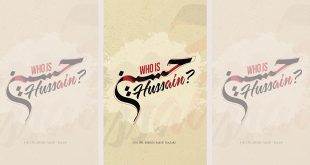At the present time, when so-called Islamic radicalism, terrorism and Jihadism occupy major media space, with Islam often depicted as the main culprit, the book attempts a tour de force.
It proposes that Islam is as much victim as culprit in the history that has led to the current hostility. This is because the common claims of both mainstream and radical Islam that Islam represents the high point of the Abrahamic tradition, and therefore a purification of Judaism and Christianity, have been largely ignored, misunderstood or blatantly rejected by these faiths and therefore by ‘the West’ in general. This rejection has effectively rendered Islam as the poor cousin, if not the illegitimate sibling, of the tradition. In turn, this has created long-term resentment and hostility within Islam as well as robbed the ‘Judaeo-Christian West’ of a rich, inter-faith understanding of the wider Abrahamic tradition. The book explores these claims through textual, historical and theological analyses, proposing that many of them stand up better to critical scrutiny than has been commonly acknowledged. It further proposes that seeing Islam in this way has potential to re-awaken its self-understanding as a leader of accord among the Abrahamic faiths, of the kind that characterized the era of Convivencia when, in medieval Spain, Islam constructed and contributed to advanced civilizations characterized by relatively harmonious co-existence between Muslims, Christians and Jews. The book focuses on the role that a more respected and self-confident Islam could play in forging enhanced inter-faith relations in a world that desperately needs them as it struggles to understand and deal with modern and particularly vicious forms of radical Islamism.
About the Author
Terence Lovat is Emeritus Professor (Philosophy, Religion and Theology) at the University of Newcastle, Australia and Senior Research Fellow at Oxford University, UK. He is a former Pro Vice-Chancellor and Dean at Newcastle, currently holding a full-time research position. One of his main areas of research (incl. funded) involves Islam with particular attention to its relationship with Judaeo-Christianity and ‘Western’ civilization. He has won awards from Islamic groups for his work on Islam. Robert Crotty is Emeritus Professor (Religion and Education) at the University of South Australia. He is an eminent biblical studies scholar whose work has focused principally on the Abrahamic religions and their interface. He has written many books on Judaism, Christianity and has publications on Islam, including on the enigmatic role of Hagar, the Arabic wife of Abraham and mother of his first-born, Ishmael. Hagar and Ishmael constitute iconic sacred figures of both mainstream and radical Islam.
Table of contents:
Part I The Abrahamic Religions (Islam, Christianity and Judaism) and a Theory of Religion
- An Introduction to the Abrahamic Religions
Introduction
Abrahamic Religions
The Abraham/Ibrahim Story
Supersession
The Uneven Issue of the Enlightenment
Islamic Scholarship
- A Theory of Religion and Being Religious
Introduction
Culture and Multiculturalism
Attitudes to Everyday Culture
Religion and Religious Pluralism
Attitudes to Religious Culture
Religious Pluralism.
Ethnocentrism and Religious Exclusivism
Summarizing Religious Exclusivism
Religious Collectivities
Religious Myth
Sacred Ritual
Mediation
The Mediatorial System
Part II The Sacred Story(ies) of the Abrahamic Religions from Three Vantage Points
- The Story from the Vantage Point of Judaism
Introduction
The Abraham Story Within Judaism
Dating the Jewish Story
Unpacking the Meaning of the Story
The Hasmoneans
Synchronic Meaning of the Story
Isaac in the Jewish Story
- The Story from the Vantage Point of Christianity
Introduction
The Jewish Story in the Book of Hebrews and the Letter of James
The Jewish Story in the Synoptic Gospels
An Extended Version of the Aqedah?
Later Christian Writing
The Growth of the Story
- The Story from the Vantage Point of Islam
Introduction
Ibrahim and Ishaq in the Islamic Story and Ritual
Ishaq and Ishma’il in the Islamic Version
Biblical Truth or Jewish-Christian Colonizing?
The Islamic Account: Re-Interpretation or Original?
The Qur’an and the Overwhelming Basis of Submission
Part III Islamic and Islamist Scholarship and the Abrahamic (Ibrahimic) Tradition
- The Heart of the Ibrahimic Story in Islam
Introduction
Ibrahim, Ishma’il and the Distinctiveness of Islam
The Importance of Ibrahim and Ishma’il to Islam
The Centrality of Ishma’il
Further Reflection on the Abraham/Ibrahim Story
Positioning Abraham and His Progeny in the Jewish Account
An Arabic Account of Ibrahim and His Progeny
Moses/Musa
The Need for and Justification of Islam
- The Increasing Cogency of Islamism
Introduction
Islamic Reinterpretation of the Past
Islamist Radicalism
Muhammad al-Ashmawi
Where to from Here?
Part IV Exploring Convivencia and the Potential for Islamic Leadership
- The Historical Exemplar: La Convivencia
Introduction
Convivencia and the Earlier Theory of Religion
The Caliphate of Cordoba
Norman Palermo
Christian Toledo
Convivencia in the North of Spain
Summarizing Convivencia
Dismantling the Umbrella and Destroying Convivencia
- Re-constructing Convivencia in the Twenty-First Century
Introduction .
Abrahamic Harmony and Islam’s Special Role
Releasing the Exclusivist Trigger
Bibliographic Information
Title: Reconciling Islam, Christianity and Judaism
Author:
Publisher: Springer International Publishing
Language: English
Length: 137 pages
ISBN: 978-3-319-15548-7
Pub. Date: 2015
 Ijtihad Network Being Wise and Faithful Muslim in the Contemporary World
Ijtihad Network Being Wise and Faithful Muslim in the Contemporary World
